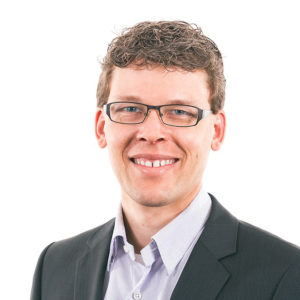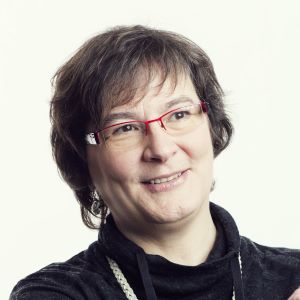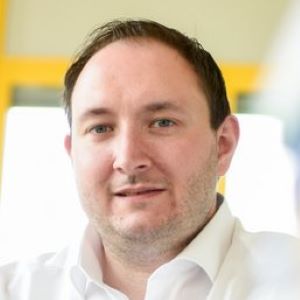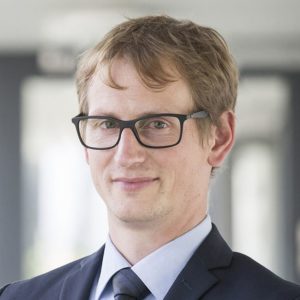Digital Change in the Flow of Time
September 6-9, 2020 in Magdeburg
The Mensch und Computer (MuC) conference is an annual conference organised by the German Informatics Society (Gesellschaft für Informatik e.V.) and the German Usability Professionals Association (German UPA). With more than 800 participants in the past, the Mensch und Computer MuC is one of the largest German-speaking IT conferences and the largest HCI conference in Europe.
The main scope of the conference is to connect people with other IT professionals, keep in touch with the latest trends in the field of HCI, interface design and usability. Therefore, MuC comprises two main tracks. While the scientific track (“Mensch-Computer-Interaktion” – MCI) presents new research findings in the field of HCI, the practice-oriented section (“Usability Professionals” – UP) focuses on state-of-the-art reports and workshops on usability and user experience.
Accepted short and long papers will be published in the ACM Digital Library.
Important Information
With the uncertainties imposed on us due to the current COVID-19 pandemic, the decision has been made to convert MuC2020 into an all-digital conference. Although we were looking forward to welcoming you in beautifiul Magdeburg, the health of our community is our top priority. In line with this year’s motto „digital change in the flow of time“, we perceive this situation not as a burden but rather as a chance to explore new formats of presentation, communication, and networking in our digital community. We are currently working on translating all of the MCI and UP track’s various participation formats into their digital equivalents to preserve the rich and multi-faceted nature of MuC. The conference will take place as planned from September 6th to 9th.
Call for Papers
We welcome contributions from academics and practitioners in the form of long papers, short papers, demos, workshops, tutorials, and doctoral colloquiums. To stengten the international profile of the conference, we welcome and encourage submissions and presentations in English. Although the main conference language is traditionally German parts of the program are in English (e.g., keynotes, invited talks, selected talks, etc.)
Important Dates
| Track | Contribution Type | Submission | Acceptance Notice | Camera Ready Submission |
| MCI | Workshops | 06.03.2020 | 20.03.2020 | 10.07.2020 |
| MCI | Full Papers | 17.04.2020 | 29.05.2020 | 10.07.2020 |
| MCI | Short Papers, Tutorials | 05.06.2020 | 03.07.2020 | 10.07.2020 |
| MCI | Demos | 19.06.2020 | 03.07.2020 | 10.07.2020 |
| MCI | Submissions to the Doctoral Colloquium | 28.06.2020 | 03.07.2020 | 10.07.2020 |
| UP | Contribution Proposals (Abstract) Workshops and Tutorials | 17.04.2020 | from 30.04.2020 | Review Version 31.07.2020 Final Version 30.08.2020 |
| UP | Contribution Proposals BARCAMP | 31.07.2020 | – | Review Version 31.07.2020 Final Version 30.08.2020 |
Scientific Track
Practitioners Track
The conference’s practitioners track invites you to submit workshops and tutorials as well as Barcamp presentations in German or English language.
Workshops within the practical part allows our participants to discuss and work on an interesting topic together with other experts. Each workshop will get a 90-minutes slot at the conference. You are invited to submit a written contribution, although this is no prerequisite for conducting the workshop.
Tutorials offer the opportunity to show theoretical as well as practical knowledge or experiences to other participants. Each tutorial gets either a 90-minutes slot or 4 hours (half day). If you organize a tutorial, you are rewarded by just paying the reduced conference fee.
This year no Full, Creative or Young Professionals presentations will be collected and reviewed in advance. Instead, there will be a BARCAMP format on the Practitioners Track in 2020. Anyone can bring a presentation or a request to the conference, which will be briefly presented by the speakers in an organization session on Monday morning of the conference, then selected by the audience for presentation and assigned to a time slot. Our aim is to further promote the quality and balance of the topics and offer a program to beginners as well as experts.
Contributors wishing to have a written contribution published will be invited to submit it by the end of July 2020. These will be published in advance on the conference website. Contributions selected by the audience for presentation will then be published in the conference’s Digital Library.
Submission and Review Process
Long papers should be 6-10 pages long (excluding references). Short papers should be 2-4 pages (excluding references). Each submission will be peer-reviewed by at least three experts of an international program committee. All papers have to be submitted via ConfTool using one of the following templates:
Main Topics of Mensch und Computer
Methodology And Modeling
- Adaptive User Interfaces
- User Modeling
- Agile Methods
- User Experience and Usability Research
- Novel Evaluation Methods
- Prototyping and Interaction Modeling
- User Experience Design
Interaction Techniques
- Tangible Interaction
- Haptics, Touch, and Gestures
- Human-Robot Interaction
- Look, Point, Touch – Multi-Device Interaction
- Mobile Interaction Techniques
- Eyetracking und Gaze Interaction
- Brain-Computer Interfaces
- Wearable und Nomadic Computing
- Multimodal Interaction
- Assistive Technologies
Application Areas
- Internet of Things and Industry 4.0
- Interaction with Embedded and Ambient Systems
- Smart Homes
- Ambient Assisted Living
- Automotive User Interfaces
- CSCW and Social Computing
- Digital Humanities and UX
- Entertainment Computing
- Virtual Reality, Augmented Reality, Mixed Reality
- Virtual Characters and Avatars
- Gamification and Serious Games
- Usable Security
- Health and Well-being
- Learning Technologies
Reflection And Perspectives: Individuals And Society
- Affect, Aesthetics, and Emotion
- Designing for Gender and Diversity
- Inclusiveness
- Refugee Informatics
- Economic Perspectives of UX
City of Magdeburg
Magdeburg has approximately 240.000 inhabitants. It is located between Berlin, Hannover and Leipzig. The first Gothic cathedral in Germany is the major sight in the city. In its history, it was the place of the German emperor Otto. In the 17th century, the inventor Otto-von-Guericke served as the mayor for more than 30 years. Magdeburg therefore is called the Otto-city. The university is one of the youngest in Germany, being founded in 1993. A technical university with a focus on mechanical engineering existed before and served the needs of Magdeburgs formerly large industrial sector.








